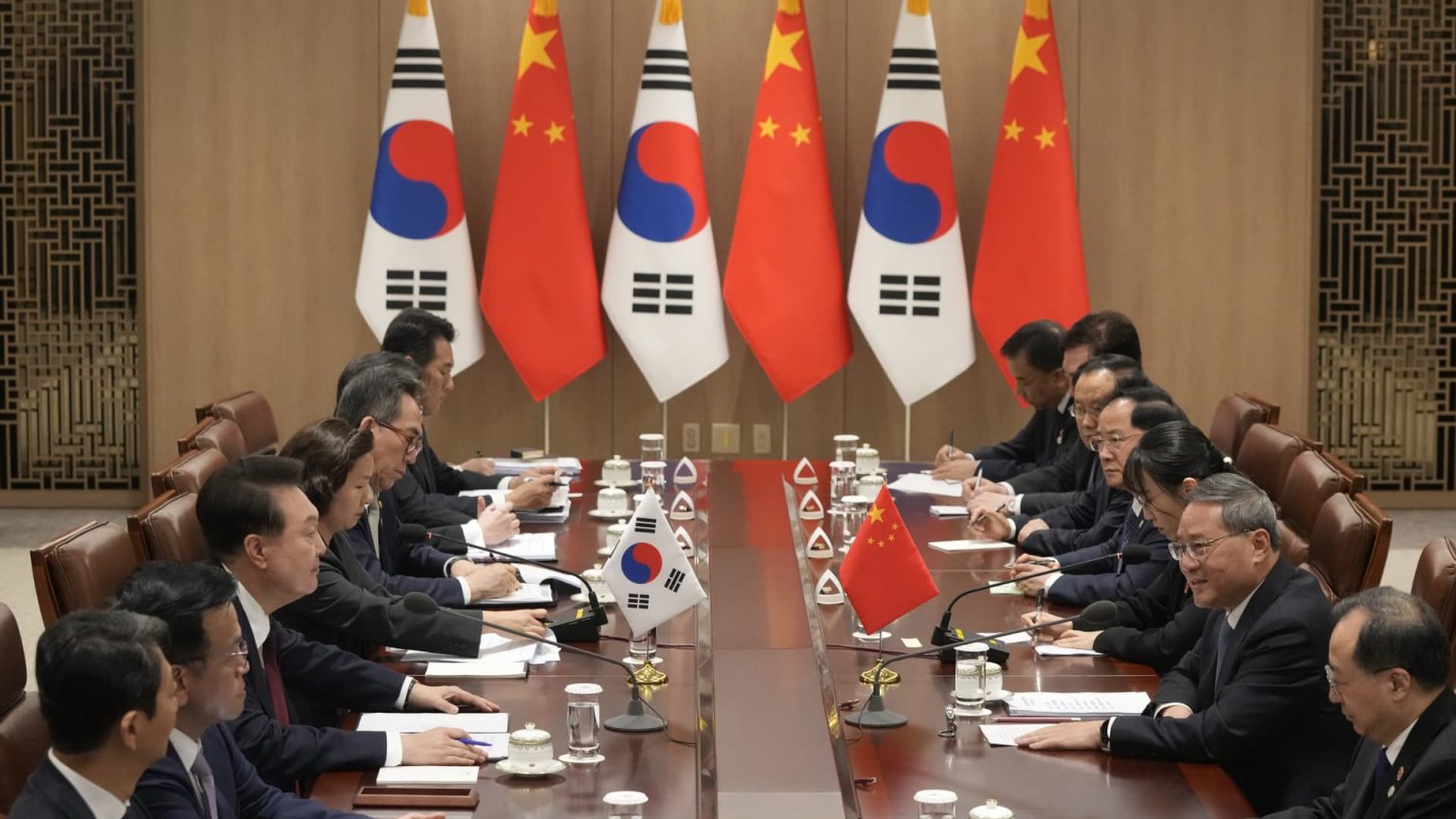Chinese Premier Li Keqiang called on Japan and South Korea to reject protectionism and uphold free trade during a trilateral summit in Seoul. He emphasized the importance of seeing each other as partners and opportunities for development, rather than turning economic and trade issues into political games. The three leaders agreed to institutionalize cooperation through regular trilateral summits and ministerial meetings, and continue negotiations for a free trade agreement that is fair, comprehensive, high-quality, and mutually beneficial. The summit was seen as crucial for stabilizing relations between the three countries, particularly given the regional security challenges, including nuclear and missile threats from North Korea.
The summit also aimed to address the economic aspects of their relationship, with a focus on ensuring a global level playing field that is transparent for trade and investment. China’s large market was highlighted as an important factor that Japan and South Korea cannot afford to ignore, despite challenges in navigating their economic relationships with China. Both countries emphasized the need to continue communication in the field of export control, recognizing that China has limited leverage when it comes to North Korea. Cooperation between Japan, South Korea, and the United States was seen as crucial for stemming weapons proliferation from North Korea and addressing regional security concerns.
Ahead of the summit, Chinese Premier Li Keqiang held bilateral talks with the leaders of South Korea and Japan, emphasizing the importance of maintaining an unimpeded supply chain and safeguarding the global free trade system. Japan expressed serious concerns to China about issues such as the situation in the South China Sea and China’s military activities near Taiwan, highlighting the significance of peace and stability across the Taiwan Strait for the international community. Despite efforts to keep the economic relationship between China and Japan stable, the security environment, particularly Japan’s closer ties to Taiwan and the United States, poses challenges in insulating economic ties from broader geopolitical developments.
The trilateral summit between China, Japan, and South Korea aimed to reinvigorate economic and security ties, with a focus on rejecting protectionism and upholding free trade. The leaders agreed to institutionalize cooperation through regular meetings and continue negotiations for a free trade agreement. Both countries acknowledged the importance of China’s large market but also recognized the need for cooperation with each other and the United States on regional security issues, especially in relation to North Korea. Maintaining an unimpeded supply chain and ensuring a transparent global level playing field for trade and investment were also key priorities discussed at the summit.
The summit addressed the regional security challenges, including nuclear and missile threats from North Korea, and called for the denuclearization of the Korean Peninsula. China, Japan, and South Korea pledged to make positive efforts towards a political settlement of the issue and emphasized the importance of cooperation in addressing weapons proliferation from North Korea. While China seeks to lure South Korea and Japan away from U.S. initiatives, the three countries acknowledged the need for continued communication in export control and recognized the limitations of China’s leverage in dealing with North Korea. The summit highlighted the complexities of balancing economic interests with broader security concerns in the region.
In conclusion, the trilateral summit between China, Japan, and South Korea underscored the importance of rejecting protectionism, upholding free trade, and maintaining cooperation on economic and security issues. The leaders agreed to institutionalize their cooperation through regular meetings and work towards a free trade agreement that is fair, comprehensive, high-quality, and mutually beneficial. Despite challenges in navigating their economic relationships with China and addressing regional security threats, the three countries emphasized the need for continued communication, cooperation, and efforts towards denuclearization on the Korean Peninsula. The summit was seen as critical for stabilizing relations between the countries and addressing the complexities of balancing economic interests with broader geopolitical developments in the region.


